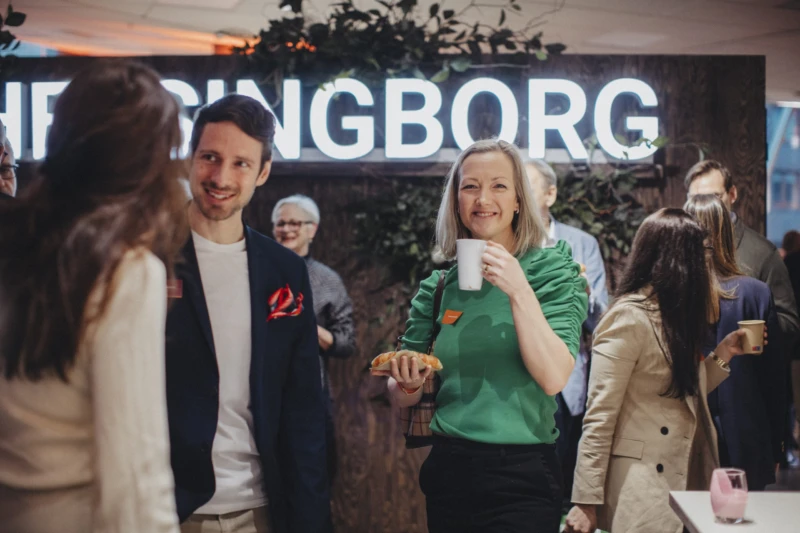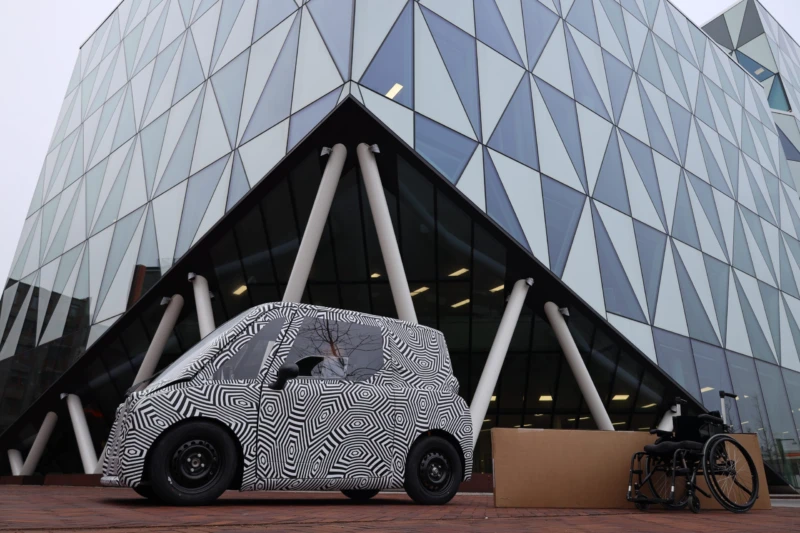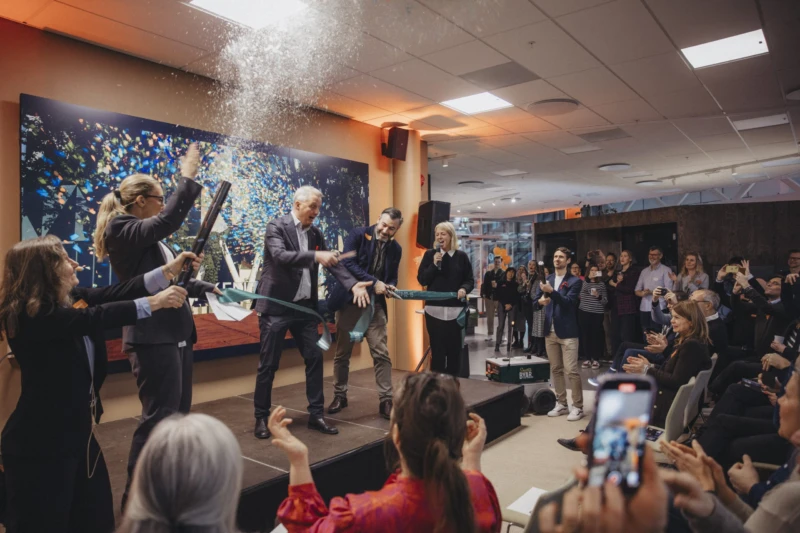In Parken, Helsingborg will create the city of the future
In February, Helsingborg opened a brand-new Centre for Innovation – Parken. Here, businesses, academia, civil society, and other change actors will meet to shape the future. ”We need to work together across sectors to create a smart, sustainable, and considerate city,” says Lisa Olsson.

Like other cities, Helsingborg faces several challenges. These include complex climate issues, an ever-increasing need for care, security issues, and challenges related to skills supply.
Continuing to work as we have always done is not sustainable.
”We see that the city needs to be transformed in three areas. It is about green, technological and social transformation, where new forms of collaboration and innovations can be the key,” says Lisa Olsson, Director of Innovation and Transformation at the City of Helsingborg.
A natural meeting place for stakeholders
Parken, was inaugurated on 15th February and is located in Oceanhamnen, Helsingborg’s newest neighbourhood. It houses the Department for Innovation and Transformation. There is also space here for public actors, companies, and academia to meet and discuss the challenges.
”There is a great desire for change among businesses, associations, academia and others who drive change in society. There are many areas where we can co-operate, so we need a meeting place where we can work on these issues. Parken will also be a natural part of Helsingborg’s emerging innovation district. The city needs to be where businesses and academia naturally move,” says Lisa Olsson.

A 3D printed vehicle is the first of its kind
A 3D printed electric vehicle from the Spanish company e-Miles was also present at the inauguration. The vehicle features front and rear loading for both people and goods, perhaps providing mobility solutions for the cities of the future. During the inauguration, the City of Helsingborg and Lund University signed a letter of intent with the company that developed the vehicle.
”Together with Lund University, we want to explore how the vehicle could be used in the city’s operations. This is a good example of how businesses, the municipality and academia can work together to solve welfare challenges,” says Lisa Olsson.
This is exactly how Parken is intended to work, as a meeting place where different actors find each other to solve the challenges of the future together.

Emission-free construction machinery and AI-driven school
Since its opening, Parken has already hosted a number of events, including a market dialogue with the construction industry on how to switch to zero-emission machinery. Training on AI-driven schools, climate dialogues and a research conference have also used Parken as a meeting location.
And the meeting requests continue to roll in.
